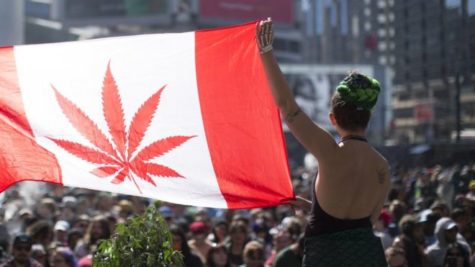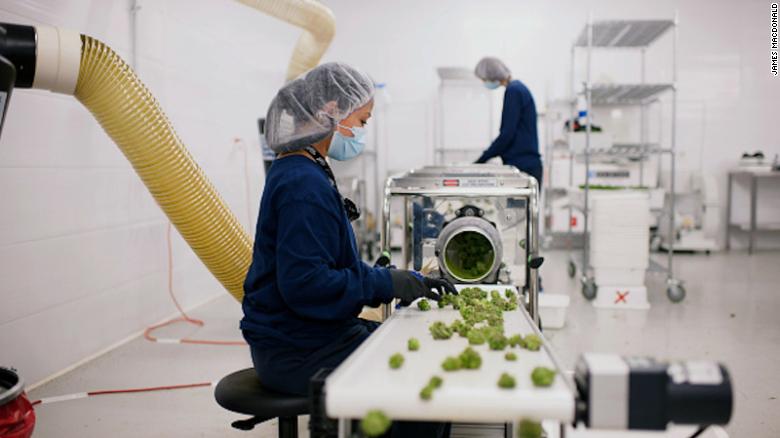Canada is Second to Legalize Marijuana
Employees perform a quality check as medical marijuana buds come out of an automated trimmer at the Tweed Inc. facility in Smith Falls, Ontario, Canada, on Nov. 11, 2015. Construction and marijuana companies are poised to benefit from the Liberal Party’s decisive win in Canada’s election, with leader Justin Trudeau vowing to fund infrastructure spending with deficits and legalize cannabis. Photographer: James MacDonald/Bloomberg
On Wednesday, October 17, Canada became the second country to legalize recreational marijuana with the Cannabis Act. The decision was made in June and was finally enacted. Uruguay was the first country to legalize recreational marijuana, and some countries have decriminalized it. Medical marijuana has been legal since 2001 for Canada, and rates of usage have been one of the highest (mostly by young people). One reason for the legalization is because of such high usage and black markets earning most of the profits. Prime Minister Justin Trudeau is behind this Act with saying, “it’s been too easy for our kids to get marijuana.”
There are concerns from the police about a possible rise in drug impaired driving; however, the Canadian government addressed these concerns by changing the laws towards driving under Cannabis influence. Marijuana also won’t be sold at the same places as tobacco or alcohol.
There will be record suspensions available for citizens who were imprisoned for owning a small amount of cannabis. They will have to apply for a pardon, which takes ten steps, but there are some concerns as to how long these pardons may take.

woman holding a Canadian flag with cannabis on it instead of a Maple leaf
Experts also foresee a shortage in recreational marijuana by the end of the year, but four days after the legalization, problems have already arisen. Supply for licensed stores are short and they cannot keep up with the high demand. They cannot access enough supplies when they need to reorder.
For some countries like South Korea, consuming marijuana is still illegal for them, even overseas. The South Korean Embassy warned South Korean citizens on Twitter that it’s still illegal for them to use marijuana while in Canada.
This is a big step for Canada and problems and successes are difficult to tell for sure.

